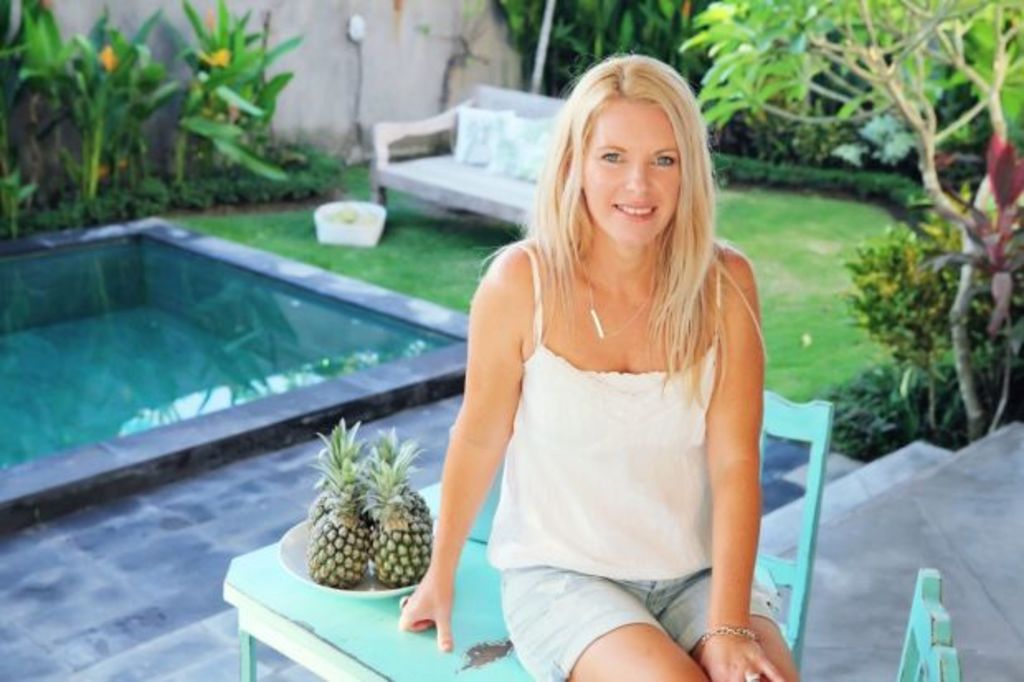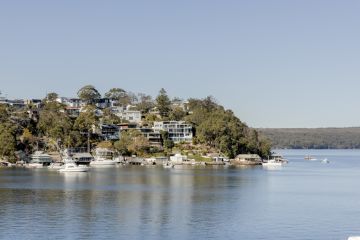Buying a Bali villa: how Australians can get it right

On her regular jaunts to Bali, you might find Nicole Nicol and her family lounging by their pool, sipping a fresh coconut, or ordering in some nasi goreng.
It’s a life that Nicol has slipped easily into – but one that remained a mystery until last year.
“I thought ‘I wonder how people have villas and live in Bali,’ and now we do,” says Nicol, who usually lives on the south coast of New South Wales.
The designer, who owns baby bed linen business Alphabet Monkey, has some of her products made in Bali. So it made sense she and her husband sign a three-year lease on a villa they stumbled upon in the rapidly developing surf town of Canggu.
“It turned out the local that was building it had almost run out of money to finish,” says Nicol. “We ended up doing a deal … so he could finish and put the pool in and our lease started once it was all complete.”
To ensure the deal was legitimate, they visited a local notary – similar to a solicitor – three times.
“I think when you look online or with estate agents things get a whole lot more expensive,” says Nicol, who negotiated a twice-yearly payment system to avoid paying the whole lot upfront.
She says most of the hiccups so far with the villa have been minor things relating to miscommunication.
Nathan Ryan, owner of Bali Realty, says it pays to be aware that it is illegal for foreigners to buy property outright. However, you can buy a long-term leasehold.
Ryan says a growing number of investors are looking to the north – such as Lovina, Amed and Candidasa – as hotspots such as Seminyak get even busier, and expensive.
He says “almost unrestricted development” in Bali’s south in the past couple of years has put the brakes on rental returns, which have dropped back from between about 6 and 10 per cent net last year, to around 4 to 6 per cent.
“I think in those areas (such as Seminyak, Nusa Dua and Pecatu) there’s still opportunities, but the location now is even more important.”
Ryan says leaseholds can offer security – if you undertake due diligence by using respected contacts and registering your lease on the property title.
That way if the property owner decides to sell, the lease remains in place.
However like anywhere, Ryan says you need to be careful.
“Generally when people get caught out, they get caught out because they’ve overly trusted someone, typically a local person who thinks they are their best friend in the world,” he says. “People do stuff in Bali that they’d never do at home.”
Greg Smith, managing director at Elders Bali, says it pays to remember there are very few regulations guiding the industry.
He suggests going through a reputed agency. If you’re doing a private deal, be particularly wary of handing over money to just anyone.
“You can meet someone who’s a very nice person, so you pay a deposit, and then never ever see that person again,” warns Smith.
“You don’t know whether that person you’re giving the money to is the legitimate owner. It could be the bloke who cleans the pool.”
Smith says it’s not unheard of for a tenant to move in, only to be confronted by someone who flies in two weeks later and asks: “what are you doing in my apartment?”
He says a notary should take a copy of the owner’s ID, and ensure there’s a bona fide lease in place.
As for Nicole Nicol and her family, they’re loving having a second, tropical home to retreat to.
“We like to spend the Aussie winter away and it’s so nice to turn up and all the locals remember you,” she says.
We recommend
States
Capital Cities
Capital Cities - Rentals
Popular Areas
Allhomes
More
- © 2025, CoStar Group Inc.






